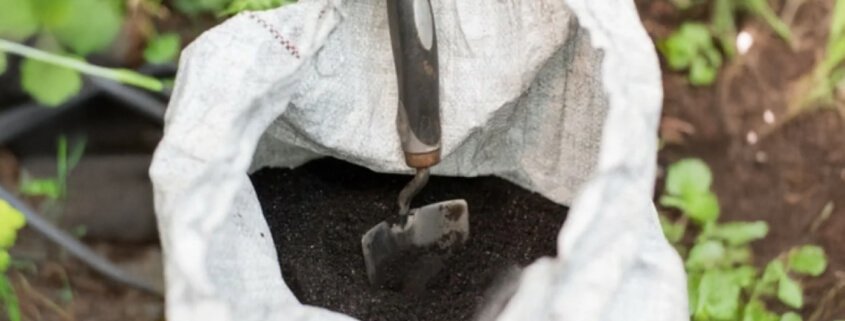Packaging – paper, plastic and boxes
Why do we use woven plastic sacks and tape our cardboard boxes with plastic tape?
Most of our customers are deeply environmentally aware – using biochar and biochar super compost is as much about sustainable gardening as it is about beautiful flowers and vegetables.
This rightly prompts questions around the packaging we use.
We use woven/laminated polypropylene plastic sacks (white sacks!). We put the sacks into a cardboard box which is then taped up with brown plastic tape.
We are always looking to improve and reduce the impact of packaging. We welcome any suggestions for new and improved methods, but we also want customers to be aware we have years of experience shipping biochar related products. We have tried many different options and the choices we use reflect a balance of what works for you, the couriers and retail stores with a view to minimal impact on the environment.
Why not use paper sacks?
Biochar from the retort kiln is very dry but it absorbs moisture quickly. It can absorb up to three times its own weight. Example: a 5kg bag of dry biochar could weigh 15kg if left out in rain. It is often not possible to bag directly from the kiln. Stock often needs to be held in bulk bags and sometimes kept outdoors (which can be good, as it avoids building more warehouses). Even when kept in a warehouse, unless the warehouse is heated(!), the biochar will absorb some moisture. Damp biochar and paper bags are poor combinations – the bags fall apart very easily.
Biochar also supports microbial growth – it speeds up the decomposition of organic matter, it is a compost activator! A damp bag of biochar will go mouldy and split within weeks (yes weeks, not months or years). We need to build stocks to respond to fluctuating demand – so using paper does not work.
Biochar suppliers claiming “sustainable” paper bag use, we would suggest are bagging tiny amounts of biochar directly from the kiln and shipping it immediately. We believe once they grow their order volume, they will face the issue we and others have already had to tackle.
What happens if a bag splits in transit or on the shop (retailer’s) floor?
Customers are familiar with paper bags used when buying locally made charcoal. If a bag of lump charcoal splits, it has a different impact to a split bag of biochar fine granules. Biochar dust and particles stick to the floor. It is a huge challenge to remove them. Sweeping up will not remove it – you need neat washing up liquid. The dust gets carried by foot and you have footprints all over the house/floor. Bad enough if this happens at home, but consider what would happen if the bag splits in-store or on the courier van. The cleanup cost and potential risk of no longer stocking or carrying further parcels is very real!
This risk of split bags increases enormously when you go beyond the 1kg and 5kg bags. and supply 10kg and 20kg units. Paper bags with 10/20Kg tear on lifting and moving. We have seen only a few boxes returned, but it’s enough to know just how tough the online-courier delivery model can be on the packaging. Robust sacks and double wall boxes are the minima to avoid damage on heavier parcels.
Why do we use brown plastic tape over say Kraft (paper) tape?
We have tried paper /waxed tapes – even recently we tried a new tape ‘that promised strength’. It tore with ease, even a slip of fingernail punctured it. We abandoned use after one roll. The boxes need to stay shut, the tape needs to add security against damage. There are some tear-resistant paper tapes – but those we have investigated get the strength from a fibre-glass (i.e. plastic) thread. We think this is worse than plastic tape. The consumer ‘thinks’ the tape is recyclable/compostable. The waste stream is now contaminated with plastic thread (glass fibre is plastic thread not glass). We are on the lookout for a paper tape that is strong enough and 100% compostable.
We think it is reasonable for customers to pull off the brown plastic tape, scrunch it up and put it in the black bin. The cardboard can then re-used again, recycled or composted.


